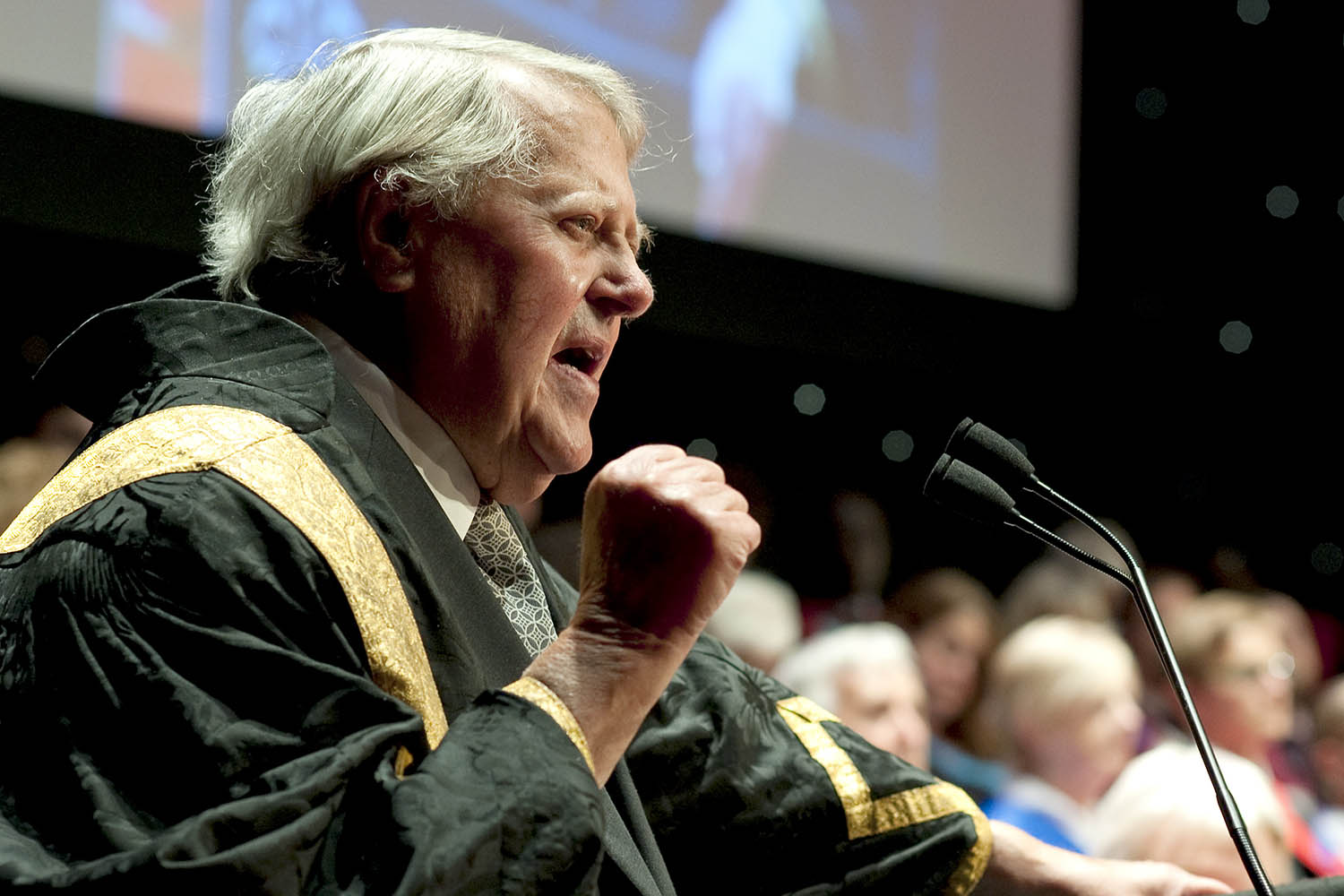Few figures were as emblematic of optimistic reformism during the 1960s and 1970s as the historian and academic administrator Asa Briggs. Harold Wilson brought Labour to power in 1964 on a prospectus for technocratic modernisation – one implication of which was a break from stultifying traditionalism in education. In 1961, Briggs had left Leeds University to take up a post at the new University of Sussex, where he was the rainmaker responsible for its innovative cross-disciplinary curriculum, eventually becoming its egalitarian vice-chancellor in 1967.
That same year, Briggs joined the planning committee for Wilson’s prize project, the Open University: a bold attempt to use broadcasting to promote broader democratic access to higher education. But Briggs was much more than an educational entrepreneur. He also pioneered a revolution in historical studies, most notably in urban history and communications. He was at home in the media too, appearing on radio and TV, sitting on the board of Southern Television, and the subject of admiring profiles from the Sunday Times Magazine to Vogue.
But the heady buoyancy of the mid-60s didn’t last. The new universities became scenes of student protest – though Briggs himself was a notably emollient presence on campus – and the interdisciplinary curriculum at Sussex, according to its own academics, resulted as much in “muddle” as in creativity. In 1976, Briggs, a down-to-earth Labour-supporting Yorkshireman, accepted a peerage and retreated to the provostship of Worcester College, Oxford. Although he continued to hobnob for decades with the great and the good, he was – though only 55 years old – already one of yesterday’s men. He continued to publish, but the books were, critics noticed, increasingly bland, limited in analysis and short of the vim that had marked his early work. Worse still, his successors gradually dismantled the distinctive features of the Briggs legacy at Sussex.
Adam Sisman has already won a distinguished reputation as a biographer of historians. His study of Briggs follows his celebrated lives of AJP Taylor and Hugh Trevor-Roper. While their trajectories included obvious disappointments – Taylor’s succession of marriages and failure to become regius professor at Oxford; Trevor-Roper’s embarrassment over the forged Hitler diaries – what stands out in retrospect is the wit, panache and confidently subversive mischief-making of the two historians. Briggs’s story is sadder, the deformation of a hyper-energetic, multi-talented young man who becomes the frustrated, obsessive victim of incompatible ambitions: high office without any slacking in scholarly productivity.
A spectacular example of a creative initiator who lacked the patience for day-to-day things, and yet moved gloriously upward
A spectacular example of a creative initiator who lacked the patience for day-to-day things, and yet moved gloriously upward
Born in 1921 on the margin of the lower-middle and working class in Keighley, where his family had a small grocery shop (that eventually failed), Briggs was a precociously bookish youngster. He won a scholarship to Cambridge aged 16, where he gained a first in history, and at the same time secretly enrolled as an external student at the London School of Economics, where he took a further first in economics. Another university-like experience followed during the war, when he served as a cryptanalyst at Bletchley Park. After the war, he was faced with a rich array of options – research studentships at Cambridge and LSE, and the Labour candidacy for the Elland constituency in Yorkshire among them – but chose to take up a tutorship in politics and economics at Worcester College, Oxford. Here, he was a lively teacher, made his reputation with his pioneering researches in Victorian and urban history, and acted as an attentive mentor to Rupert Murdoch, one of his weaker undergraduates. In 1955, Briggs left Oxford to take up the chair of modern history at Leeds.
In the interim, Briggs had begun his magnum opus-cum-albatross, what eventually became a five-volume history of British broadcasting. The project took decades longer than expected, in the course of which Briggs somehow contrived to suck all the colour, character and imagination out of the BBC’s history. According to the Observer’s review of Volume II, Briggs “writes like a man diligently plodding his way across a vast plain, boots laden with slush”. The trouble was that Briggs took on far too many commissions from publishers – some he never got round to writing, while others came in decades late, or in substandard form. Because his constant scribbling occurred in the interstices of demanding posts as an academic administrator, reproaches from publishers found an echo in complaints from exasperated colleagues about the neglect of his bread-and-butter-duties and – unsurprisingly for someone who acquired the nickname “Lord Briggs of Heathrow’ – an all-too-ready acceptance of invitations to academic junkets abroad.
Sisman captures in Briggs a spectacular example of a type encountered in many walks of professional life: the creative initiator who lacks the time, bandwidth or patience required for the day-to-day running of things, and moves gloriously upwards from one institution to another without ever being rumbled.
The Indefatigable Asa Briggs by Adam Sisman is published by William Collins (£30). Order a copy from The Observer Shop for £27. Delivery charges may apply
Editor’s note: our recommendations are chosen independently by our journalists. The Observer may earn a small commission if a reader clicks a link and purchases a recommended product. This revenue helps support Observer journalism
Photograph of Asa Briggs in 2010 courtesy of University of Sussex
Newsletters
Choose the newsletters you want to receive
View more
For information about how The Observer protects your data, read our Privacy Policy
